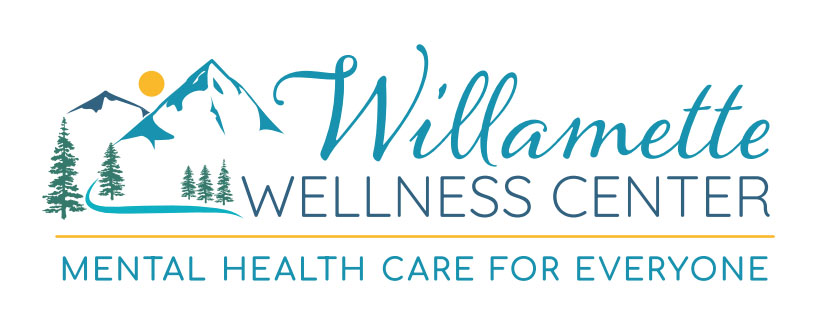Blog Post By Clarisse McLeod
Internal Family Systems’ View on Confusing Trauma Responses: “Why Did I Do That?”

Ever look back at a memory and think to yourself…
- “Why did I do that?”
- “I don’t even agree with myself on what I did!”
- “Why do I keep doing that?”
- “Why do I keep responding like that? I feel like I know better!”
- “I don’t even like this about myself! Why does it keep happening?”
If this resonates with you, one approach that can help untangle all of this is through a type of counseling called Internal Family Systems (IFS).
What Is Internal Family Systems (IFS) Therapy?
Internal Family Systems describes how we think as being made up of “parts.”
One analogy I like to use is to think of how a family typically functions. They often disagree about how to handle decisions; they’re comprised of individuals with different personalities, and hopefully, all the members want the whole family to be happy and healthy.
IFS applies this analogy to our minds. These individual “parts” of ourselves may not always agree with each other, but they still want the best for us—and they can change to create internal harmony.
How Does Trauma Affect Our “Parts” in IFS?
So remember how IFS says that the parts of ourselves continue to do what they’re doing to help us in some way?
Many times, if we untangle our everyday trauma responses—such as a “short temper” part, a “low motivation” part, a “defensiveness” part, a “resentful” part, a “people-pleaser” part, an “indecisive” part, or a “panic” part—we can see how they may have been our best option in a bad situation.
There isn’t a hard and fast rule on what these “parts” have to be. They can be personality traits, self-talk, habits, emotions, memories, trauma, opinions, or any other aspect.
This helps explain how we navigate trauma responses over the years. A confusing, often long-lasting symptom of trauma is changes in how we respond to everyday situations.
Over time, IFS can also show us how these parts may be trying to warn us if an old hurtful pattern is repeating itself—or give us clues about what needs healing.
What Does Internal Family Systems Look Like in Real Life?
For example, one client I had been working with found this helpful for understanding how she navigates her relationships with her family and friends.
In our first session, she described her confusion: on one hand, it felt essential to be liked by everyone, to the point where she would exhaust herself by being available to help and “letting it roll off” when she was treated unkindly. On the other hand, this would build up until she lashed out—completely contradicting how she wanted to show up in these relationships.
Childhood Roots
Over time, she made the connection between her childhood experiences and her present.
As a little girl with parents often incapacitated by substances, if she didn’t help immediately when something went wrong, even minor issues could become major ones—since the people who should have been her caregivers weren’t stepping in. Not only would this affect her, but she also witnessed the effect on her younger siblings.
The Alarm Clock Story
She recalled one morning as a long-time Portland, Oregon resident: her mother had stayed up drinking until the early hours, which my client discovered when the alarm went off and her mother didn’t wake up to drive her to school.
When my client tried to remind her, the response was a mumbled: “You have legs, walk yourself to school.”
Left with no other choice, she helped her 11-year-old sister get ready, and they set off. Unfortunately, the area where she and her siblings lived was not always safe, and they were threatened for money—even though they tried to explain that they needed what they had for school. When they got home, her mother blamed her for not doing enough to wake her when the alarm went off in the first place.
From that day forward, my client took over responsibility for setting alarms for her mother. This was the beginning of her “good girl” persona.
The Adult Impact
Fast forward: as an adult, when pressure built up after helping others who took advantage of her—or when she was spoken to disrespectfully—the “advocate” part stepped in.
She began to have more sympathy and understanding for this part of herself, seeing it as the justified anger of a child who deserved protection and should not have been expected to manage what the adults should have handled.
Moving Toward Healing
Eventually, she reached a point of healing connected to a future goal.
She had long wanted to advocate for the unhoused and those dependent on substances in Portland. But one thing held her back: the feeling that she “had” to do this so her old neighborhood would feel safer—not just for her, but for everyone.
Now, after recognizing the “good girl” part, she is making progress on this new journey because she feels she wants to—not because she has to.
From Shame to Self-Compassion
IFS can be a comforting way to understand and address the shame we feel about long-lasting coping skills from trauma.
When you stop asking, “Why did I do that?” and start asking, “What part of me was trying to protect me?”—healing begins.
Where to Find Internal Family Systems Therapy in Portland, OR — and Online
Here at Willamette Wellness Center, we’re a team drawn together by our passion to help clients create a better quality of life for themselves—no matter their past circumstances. We assist clients in Oregon and Washington online, as well as in-person at our Milwaukie, OR office.
Reach out today and take your first step toward freedom and understanding.

